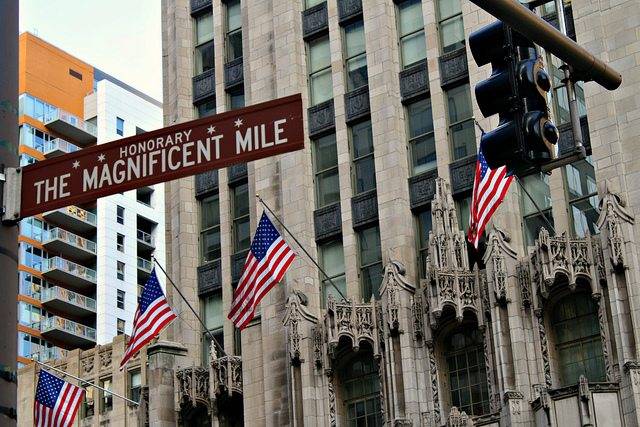Illinois-Specific Regulations for Proper Disposal of Medical Waste
In the same way a Chicago Style hot dog never has ketchup while most other hot dogs do, what is considered “medical waste” and how it is classified varies by location as well. Not to mention, specific states and even specific practices may have even more strict guidelines than OSHA about how this potentially dangerous waste is to be managed.
Beautiful Chicago
Find Out How Much You Can Save Instantly.
Try our on-line savings calculator.
The Windy City. City in a Garden. City of Big Shoulders. Chicago, Illinois goes by many names but no matter what you call it, one thing stays the same: Chicagoans value the beauty in their city. The parks and beaches, the beautiful lake; Chicago is truly beautiful. What’s important now is that we protect it and keep it that way. While the MedPro headquarters office is actually located just outside the city in a suburb named Naperville, we’re still an office full of Chicagoans and for many of us, the Windy City is home.
MedPro services 44 of the 50 states but our roots remain in the Chicagoland area and we love our Portillo’s Hot Dogs, Chicago-style pizza and Italian beef sandwiches! So what does all this have to do with medical waste?
Illinois Medical Waste Regulations
Originally passed in 1993, The Potentially Infectious Medical Waste (PIMW) regulations were the result of a nationwide scare in the 1980s. When needles and other medical waste was washing up on beaches across the country, there was cause for concern. The Bureau of Land is responsible for administering the Potentially Infectious Medical Waste Program in the state of Illinois. Each state has its own regulations for medical waste disposal and methods of enforcing them.
To find a biohazard waste disposal company in Chicago, see where we service medical waste pickup in Illinois.
Defining Medical Waste in Illinois
In the state of Illinois, Potentially Infectious Medical Waste is defined as “waste generated in connection with the diagnosis, treatment (i.e., provision of medical services), or immunization of human beings or animals; research pertaining to the provision of medical services; or the provision or testing of biologicals.”
This waste is required to be treated to eliminate its infectious potential. Sharps waste must be either made unrecognizable or packaged properly to avoid puncture incidents prior to disposal. This is in addition to being made no longer infectious. It is important to note that PIMW can only be transported to a permitted treatment facility by a licensed hauler. For more information on these regulations visit the Illinois Environmental Protection Agency‘s website.
Medical Waste at Home
While many people have needles and other potentially infectious waste at home for a variety of reasons, this waste is not considered PIMW. Waste like this generated in a household is not required to be disposed of in the same fashion as the waste generated in a clinical setting. However, there are some steps you can take to protect the refuse workers and anyone else who may come into contact with this waste.
- Sharps should be in a sealed, puncture proof container.
- Consider purchasing a sharps container from a pharmacy or mail back website.
- You may also use a laundry detergent bottle or soda bottle.
- When full, seal the container and tape it shut.
- Mark the container “DO NOT RECYCLE” and place in your regular trash.
Illinois Health & Safety Resources
In addition to the EPA, other agencies help regulate potentially infectious medical waste treatment and disposal. If you have questions or want more information you should contact:
- OSHA 312-353-2220
- Illinois Environmental Protection Agency: Beverly Albarracin 217-524-3289
- Illinois Department of Public Health (for healthcare facilities) 217-785-2629 www.idph.state.il.us
If you have questions or comments please share with us in the comments section below!




